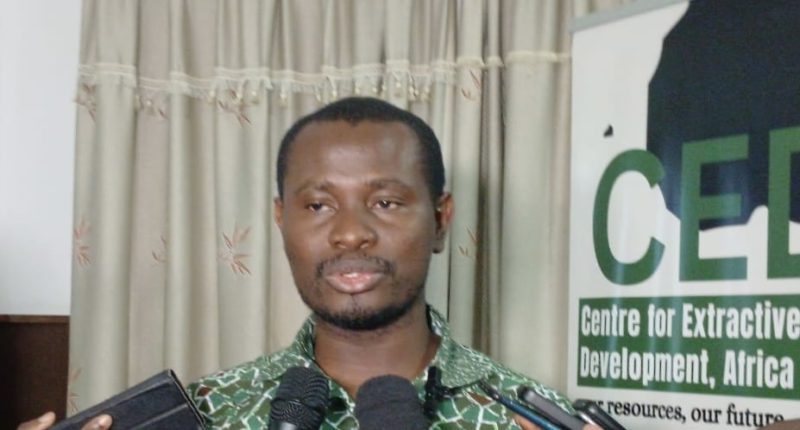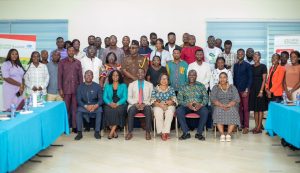The Centre for Extractives and Development Africa (CEDA) is pleased to announce the release of the report titled “Impact Assessment of ABFA Utilization by Development Authorities.” Focusing on how the Coastal, Middle Belt, and Northern Development Authorities have utilized Annual Budget Funding Amount (ABFA) to spur socio-economic development in their respective zones, we were much interested in how the authorities have contributed to poverty alleviation and inequality reduction.
Over the past decade, Ghana has strategically leveraged its oil and gas resources to drive inclusive socio-economic development by channeling significant portions of petroleum revenues to support the national budget through the ABFA.
The three Development Authorities were established in 2017 to accelerate economic and social development in their respective zones.
Since 2020 the DAs have primarily been funded by the ABFA. The primary aim of the study was to evaluate the effectiveness of the Development Authorities in utilizing ABFA to accelerate socio-economic development.
The study employed a comprehensive methodology to ensure a thorough and nuanced assessment.
It included participatory monitoring and evaluation (M&E) techniques to engage stakeholders at multiple levels, understanding their perspectives and experiences. Extensive on-site inspections of ABFA-funded projects were conducted, with a total of 30 projects inspected, 10 in each Development Authority. We conducted in-depth interviews with a diverse group of stakeholders, including community members, local government officials, and project beneficiaries, and further collected and analyzed qualitative data on the socio-economic impacts of the projects.
Additionally, secondary data, sourced from reputable government and multi-lateral agencies, was analyzed to complement community feedback and direct observations, providing a comprehensive picture of the impacts.
The following were the Key Findings from the study:
1. Community Impact: community beneficiaries informed that ABFA-funded projects have notably improved the lives of individuals and communities, contributing significantly to socio-economic growth and development. These projects have enhanced living standards for various groups, including women, youth, children, and other marginalized groups, fulfilling their intended objectives and highlighting the positive impact of ABFA funding.
The Chognuori-Liero Road in Lambussie-Karni district resulted in a notable 85% income increase for households, primarily due to improved market access for agricultural produce and shea butter. This development signifies significant socio-economic advancement, attracting new investments and enhancing access to social amenities, thereby boosting overall household income.
Similarly, the construction of Wechiau SHS in Wa West district has positively impacted gender dynamics by increasing female enrollment and reducing school dropout rate. This project supports ongoing education for young women, contributing to their empowerment and reducing gender disparities.
2. Significant Impact of Agricultural and Road Projects: Road and agricultural projects have the strongest link to socio-economic growth and development. These sectors, being critical to economic activity, have shown substantial immediate benefits, while the impacts of health and education projects are more long-term.
3. Lack of MMDA Involvement: The study identified a lack of participation from Metropolitan, Municipal, and District Assemblies (MMDAs) in ABFA-funded projects, indicating a disconnect between local governance structures and development initiatives. This lack of involvement may affect the sustainability and alignment of projects with local needs.
4. Active Community Consultation: The report highlights the active involvement of community members in project selection, ensuring that initiatives are community-focused and reflect genuine needs.
This bottom-up approach promotes local buy-in, ownership, and empowerment, which are crucial for the success and sustainability of development projects.
This community consultations were done through the regional IPEP teams that carried out thorough assessments of infrastructure requirements across all 275 constituencies prior to the operationalization of the Development Authorities.
5. Women’s Participation: Women have played a significant role in the community development process, actively initiating project discussions. Including women’s perspectives ensures an inclusive approach to project selection, catering to the entire community’s needs.
6. Limited Oversight and Operational Challenges: Development Authorities face challenges due to inadequate oversight and operational inefficiencies. The absence of dedicated monitoring funds hampers effective project tracking, leading to delays, underutilization, and poor coordination. Addressing these challenges requires enhanced strategic planning, community engagement, and inter-agency collaboration.
7. Project Completion and Utilization Issues: Despite the impact of the projects to beneficiary communities, the assessment revealed that construction works on some projects have been halted, while other completed projects underutilized. Examples include construction delays at the healthcare facility in Yakubupe and underutilized educational projects in Imamiya and a market infrastructure in Apesokubi.
Based on the study, we recommend the following to enhance the effectiveness of ABFA utilization by the Development Authorities
1. Legislative, Regulatory, and Conceptual Framework Enhancement: Introduce a comprehensive Legislative Instrument (LI) to clearly define the roles, responsibilities, and operational boundaries of Development Authorities, ensuring a robust framework for poverty eradication and socio-economic development.
2. Timely Disbursement of ABFA Funds: Establish a reliable and regular disbursement timetable for ABFA funds from the Ministry of Finance to improve financial planning and project execution.
3. Enhanced Funding Mechanisms: Create consistent funding streams, including contingency funds, to manage financial needs during disbursement delays and ensure alignment with regional developmental demands.
4. Exclusive Financing by ABFA: Ensure projects are exclusively financed by ABFA to maintain financial transparency and accountability.
5. Mitigate Political Interference: Develop transparent criteria for project selection and resource allocation to safeguard operations from political influence.
6. Facilitate Public-Private Partnerships (PPPs): Reduce bureaucratic hurdles to enhance engagement with private sector partners, leveraging additional resources and expertise for development projects.
In conclusion, this report underscores the substantial contributions of ABFA-funded projects to Ghana’s socio-economic growth.
However, it also emphasizes the need for strategic changes to maximize the impact of these initiatives. By addressing the identified challenges and adopting the proposed recommendations, Development Authorities can further enhance the use of national resources to promote equitable and sustainable development.
About CEDA
The Centre for Extractives and Development Africa (CEDA) is a leading research and policy advocacy organization dedicated to advancing sustainable development in Africa’s extractive sectors.
Through rigorous research, stakeholder engagement, and evidence-based policy recommendations, CEDA aims to ensure that natural resource wealth translates into inclusive and equitable development for all.









